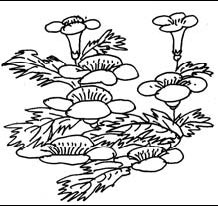By Chinese tradition, the first week of April is when we pay tribute to our loved ones who have left for the netherworld. No wonder the roads leading to the main cemeteries across China were jammed on Sunday, and the burial grounds crowded with mourners. On the same Sunday in Jerusalem, German Chancellor Angela Merkel joined a similar service in the Hall of Remembrance at Yad Vashem Holocaust Memorial. It transcended far beyond the individual, tied in with international politics and country-to-country relations.  "Humanity grows out of responsibility for the past," Merkel wrote in the memorial's guest book. "Humanity grows out of responsibility for the past," Merkel wrote in the memorial's guest book.
A willingness to be duty-bound to the past comes from repentance for the wrongful past. That is why Merkel's message resonates with the speech by former German Chancellor Gerhard Schroder at a commemoration held in Berlin two years ago. Schroder spoke on the 60th anniversary of the liberation of the Nazi death camp at Auschwitz by Russian soldiers. "I express my shame for the deaths of those who were murdered and for the fact that you, the survivors, were forced to go through the hell of a concentration camp," said Schroder. "The past cannot be 'overcome.' It is the past. But its traces and, above all, the lessons to be learned from it extend to the present." Schroder's speech, which is included in the "great speech collection" at www.historyplace.com, testifies to most Germans' sincere regret for their country's recent past history. Merkel, in her message, shared with the world a collective political will that the Germans will not let it happen again as they still shoulder the "responsibility for the past". While the German politicians are explicit, 83-year-old Yutaka Yamaguchi and the members of a Shikinsou Choir in Japan have their own way of expressing regret for their country's past. They pray and pay tribute regularly at the Memorial Hall to the Victims of the Nanjing Massacre by Japanese Invaders. Last week in Nanjing, they helped prepare the ground for a garden next to the memorial hall. The garden, named Shikinsou (Purple Gold Plant), symbolizes their hope that the Chinese and Japanese will forge an alliance for peace and prosperity. According to Yamaguchi, his father became infatuated with the small purplish lilies when he served as the imperial army doctor in Nanjing in 1939. Yamaguchi the senior brought back 10 lilies and planted them in the family garden. "The flowers bloomed the next year and Father believed they were spirits of the war dead and should return to their homeland," Yamaguchi was quoted as saying. He began to spread the plant, which is also called "the flower of peace". I believe people who have the courage to take up the "responsibility for the past" deserve our respect as such an attitude helps further peace and prosperity in the world. Their regret as well as their promise will only enhance their national pride and dignity. However, there are still people who shirk their "responsibility for the past" by denying their country's past war-mongering and by honoring Class-A war criminals in the name of nationalism. While accusing others of the use and abuse of the past, they vehemently want to push back harder. Their sense of "responsibility for the past" only arouses distrust and doubt from people in neighboring countries and the rest of the world. E-mail: lixing@chinadaily.com.cn (China Daily 04/05/2007 page10)
|

